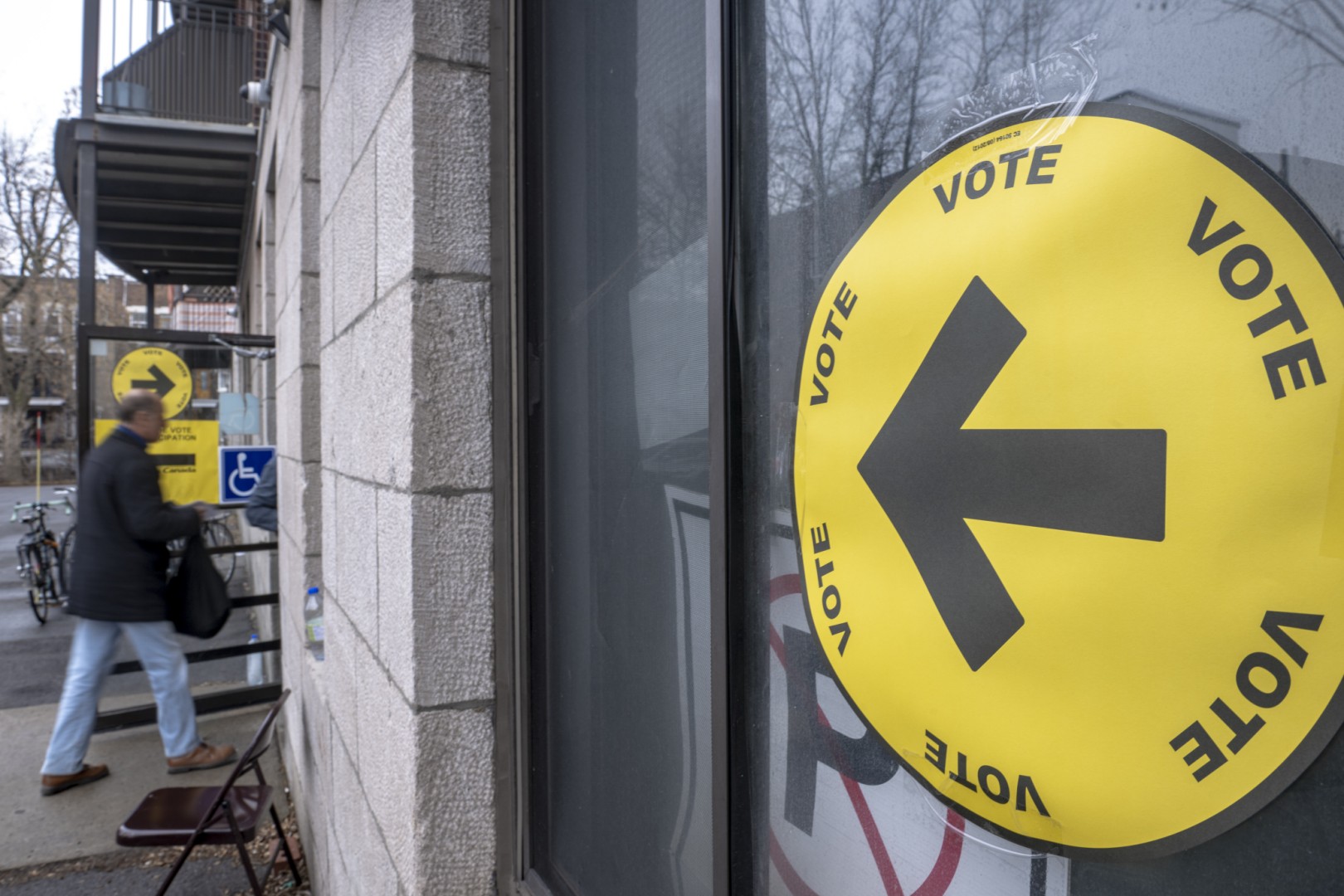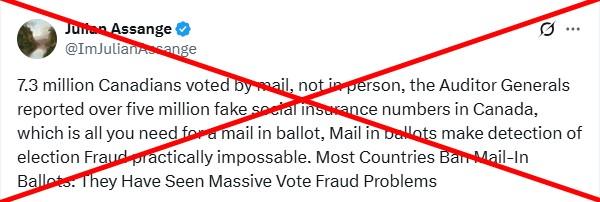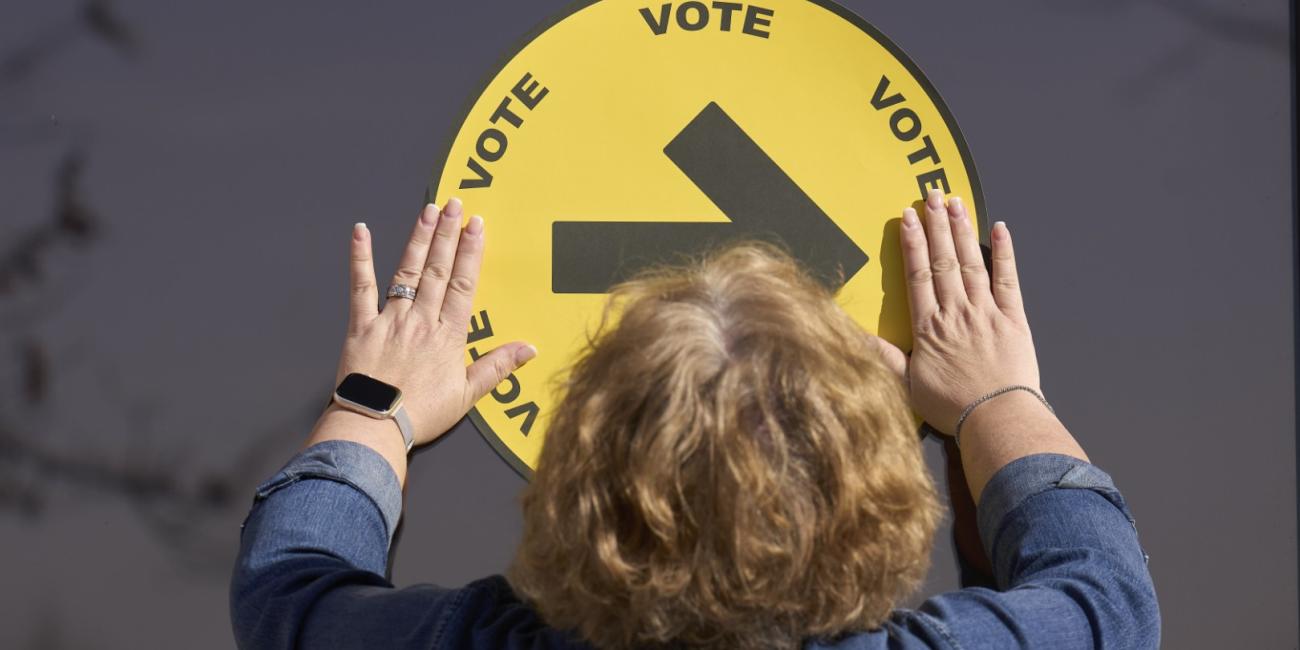
Unsupported fraud claims conflate Canadian advance polling with mail-in ballots
- Published on May 7, 2025 at 22:21
- 2 min read
- By Gwen Roley, AFP Canada
"7.3 million Canadians voted by mail, not in person," claims a April 29, 2025 X post.
"Mail in ballots make detection of election Fraud practically impossable (sic)," the post says.

Separate screenshots of the post spread to Instagram and Facebook, where it racked up hundreds of thousands of views with captions claiming the election was rigged. The claim was also translated into French.

Prime Minister Mark Carney's Liberal Party won the most seats in Canada's April 28 federal election after a short campaign which saw the opposition Conservatives lose their year-long public opinion lead in the wake of sovereignty threats from US President Donald Trump.
Rapid election calls by media organizations and details of ridings' changing boundaries have already sparked unsupported claims the race was fixed. The allegations about fraudulent mail-in ballots are similarly unfounded.
"In terms of fraud, the number of cases is very, very few -- if any," said Elections Canada spokesman Matthew McKenna in an email on May 2.
The Commissioner of Canada Elections is tasked with investigating reported violations of the Canada Elections Act and most of the recent cases do not deal with voter impersonation (archived here and here).
The post also incorrectly reports that 7.3 million people voted by mail. This figure corresponds to the record-breaking number of Canadians who cast ballots in-person at locations open for advance polling (archived here).
Special ballots
Elections Canada reported a total of 1,200,808 people voted by special ballot as the non-partisan agency dubs voting materials which are mailed to electors, at home, abroad or away from the riding they are registered in (archived here and here). These completed ballots can be sent by mail or dropped off at an Elections Canada location.
The agency states on its website that once an elector's special ballot is received, their name is marked on the voter list to ensure they do not vote twice.
Elections Canada previously told AFP that the National Register of Electors "enjoys a high degree of accuracy" due to regular updates from the Canada Revenue Agency, provincial and territorial election agencies and vital statistics bureaus (archived here).
The social media post also claimed a social insurance number, the numerical identifier that is used to gain access to Canadian government services (archived here), is all a voter needs to request a mail-in ballot.
A social insurance number card can be used as proof of identity at a polling station, according to the Elections Canada website, but another document would be required (archived here).
Elections Canada also requires voters applying for special ballots from abroad to provide a copy of their passport, citizenship card or birth certificate (archived here).
Comments under the false social media post point to different cases of public and private data breaches exposing Canadians' personal information as reasons to fear fraudulent numbers are being used to vote.
This echoes false claims about purported election fraud committed using social security numbers in the United States.
Read more of AFP's reporting on misinformation around the Canadian election here.
Copyright © AFP 2017-2026. Any commercial use of this content requires a subscription. Click here to find out more.
Is there content that you would like AFP to fact-check? Get in touch.
Contact us




